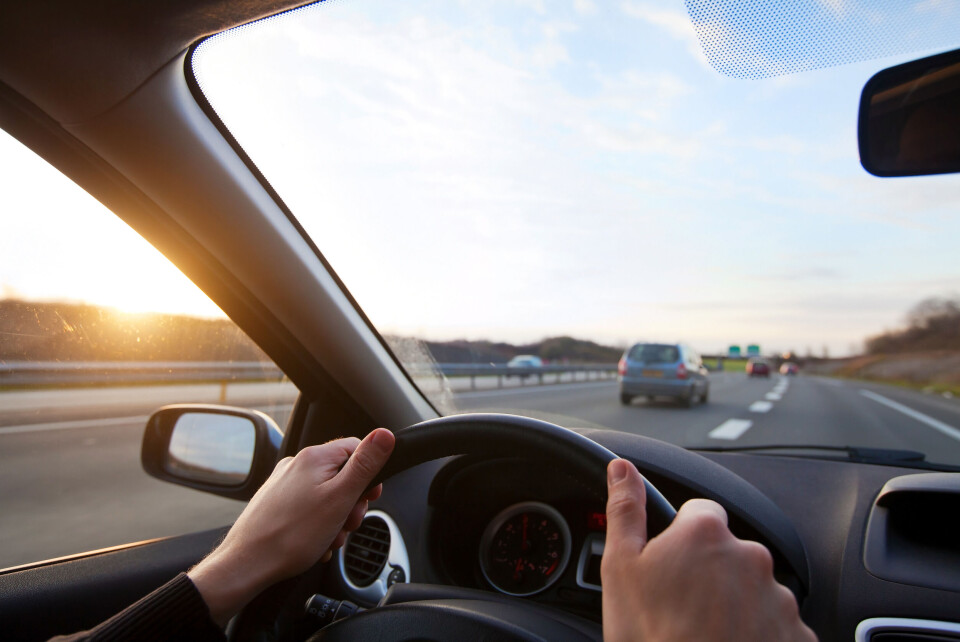-
Cold Christmas in France, but little chance of snow
High-pressure system will move into France from north-east at the start of next week
-
British ‘Puppet Master’ conman in French jail wins phones back on appeal
Robert Hendy-Freegard was given a six-year sentence after hitting two gendarmes with his car
-
Alleged British hacker in jail in France offers to help with police data breach
Recent attack targeted police files
First barrier-free paying motorway to open in France today
The new system aims to prevent vehicles from having to slow down or stop, and to save on fuel and emissions. There are several ways to pay

The first paying motorway without a toll barrier is set to open in France today (Friday, November 4), meaning motorists will need to remember to pay for its use in advance or within 72 hours of their journey.
The A79 in Allier will be the first ‘flux libre’ (freeflow) motorway in the country. Users can drive on the road at normal speeds and, as they pass, their vehicle will be identified automatically by ‘captors’ with cameras.
The road was formerly the N79. It is an 88km section of road between Montmarault (Allier) et Digoin (Saône-et-Loire). The state requested that the road be changed into a paying motorway in a bid to improve safety.
There will be no barriers or toll gates, and no need to slow down or stop at all to pay.
Instead, there will be several different ways to pay.
-
Paying in advance for a regular télépéage badge displayed on your vehicle
-
Registering on the new motorway’s website with your vehicle number plate and your payment details
-
‘Paying as you go’ on the website for each journey
There will also be 16 payment booths at the border of the motorway, which will enable people to pay by card or with coins if they prefer.
Pierre Meau, client director for the Autoroutes-Paris-Rhin-Rhone (APRR), which has completed the project, told Nice-Matin: “Clients will have 72 hours to pay for their journey [if they haven’t already].”
Drivers who fail to pay risk a €90 fine, as well as the cost of the péage. This fine rises to €375 if it is not paid in 60 days.
The road management company will have access to European licence plate databases so will be able to track vehicles even if they are not registered in France.
All future motorways in France are set to follow the same model, including the future A69, which is to link Toulouse and Castres.
The system is already common in other countries, especially in Toronto, Canada; Johannesburg and Pretoria, South Africa; Santiago, Chile; and the US. In Europe, it is already used in Lombardy, near Milan in Italy; on several roads in Norway, on half of the motorways in Portugal, the Mersey Gateway bridge in the UK and in Stockholm, Sweden.
‘Taking back the motorways’
The official introduction of the system in France comes after a trial on a section of the A4, when payment barriers were removed at the Boulay-Moselle exchange by la Société des autoroutes du Nord et de l'Est de la France (Sanef).
Apart from a few issues at the beginning, the “system showed reliability and clients became familiar with this new payment system”, said Sanef director general Arnaud Quemard.
He added: “On the A13 and the A14 between Paris and Caen, there are five barriers, with quite heavy commuter traffic, and significant peaks on weekends. At each payment barrier, it means a stop, with potential traffic jams.”
These barriers are set to be gradually replaced by automatic captors between mid-2024 and mid-2025. The idea is to “take back the motorway” and give back 28 hectares – the equivalent of 40 football fields – which are currently occupied by péage stops.
Mr Quemard said that the system would enable drivers to save time, save on fuel, and reduce CO2 emissions. The investment is estimated to amount to €120million, which will be partly covered by a small rise in toll charges.
The next motorways expected to move to the new system include the Autoroute Blanche (A40) in Haute-Savoie, which the Autoroutes et Tunnel du Mont-Blanc (ATMB) company intends to convert "in the medium term".
Air quality in the Arve Valley has been quoted as the reason for this particular change.
Related articles
French motorway company makes U-turn on péage bills
























